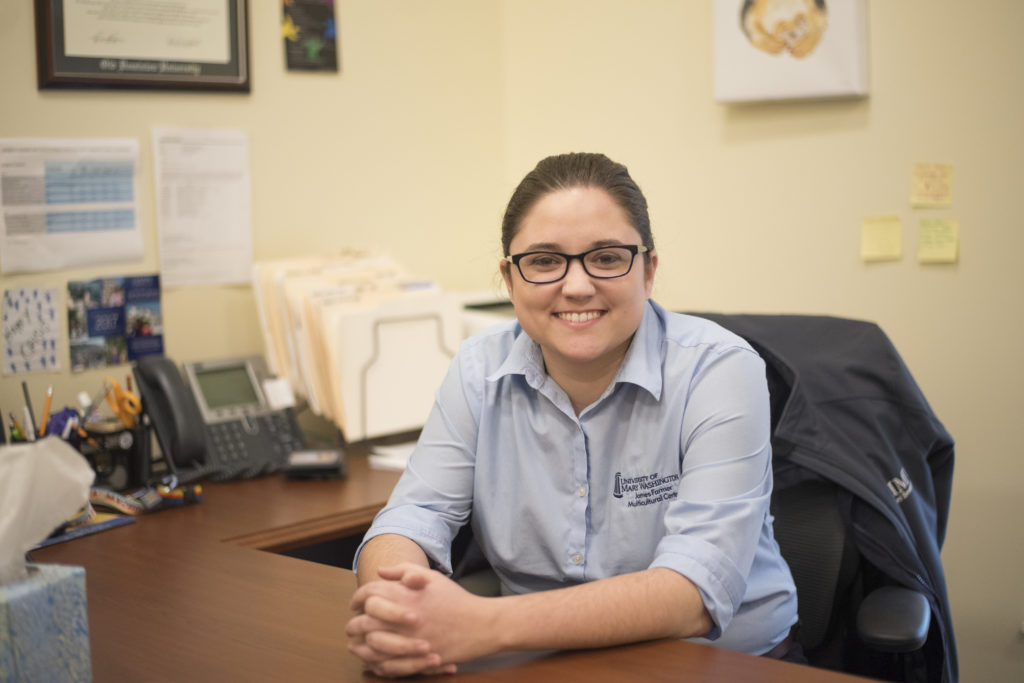If you’ve attended a James Farmer Multicultural event, you’ve likely seen JoAnna Raucci. She’s in constant motion, carrying tables and grabbing bottled water for performers – whatever it takes to make sure the events she helps plan run smoothly. That’s certainly true during February, when Raucci and her staff organize UMW’s celebration of Black History Month, including this evening’s Black Minds Matter event, a discussion of mental health in the black community.
Raucci has worked as the associate director of the Multicultural Center for more than a year. But her passion for advocacy dates to childhood – it’s in her bones. In graduate school (she has a master’s degree in higher educational administration with a focus on student affairs), she learned to combine her love for advocacy and collegiate learning through multiculturalism.
Q: How and why did you get involved in the work of multiculturalism?
A: My family has a lot to do with it. My aunt is a survivor of polio – back before the polio vaccine was developed – and she did a lot of advocacy for people with disabilities and wrote part of the Americans with Disabilities Act. My parents grew up during the Civil Rights era and did a lot of advocacy work for people of color. I think I was always that type of person who wanted to be inclusive of other people.
Q: What’s it like being the associate director of the James Farmer Multicultural Center?
A: I say pretty much on a weekly basis: “I can’t believe I get to do this.” The students are absolutely wonderful and make it so much fun to come to work every day.
Q: What’s the most difficult part of your job?
A: Making sure that the events we’re planning are as impactful as possible.
Q: What’s your favorite part of your job?
A: When an event is over, there usually are people who stick around and want to come up and talk more about what they just learned. I love those “lightbulb” moments. You can see the education happening for them.
Q: How do students benefit from the Multicultural Center?
A: Learning more about other people and where they are coming from will help with any sort of interaction. If someone comes away from our events understanding how to be more inclusive, I think they will be more successful in their careers.
Q: Why is Black History Month important to you?
A: If we forget about the history of any population that we serve, then we are doomed to repeat the same mistakes. Celebrations like Black History Month raise people up.
Q: How do you make sure the month resonates with the UMW community?
A: We do all these entertaining, fun, food-filled programs, but then we can also talk about serious subjects as well. We can offer a wide variety to the campus community.
Q: With recent proclamations of white supremacy and racial tension occurring not far from UMW, has your job taken on a new meaning for you?
A: The meaning has stayed the same for me, but recent events have highlighted the need for this work. We know we’re in it because it’s important, and we love people.
Q: Do you have a personal motto you tell yourself every day?
A: Be the change you wish to see in the world.

Awesome write up for an Awesome person!